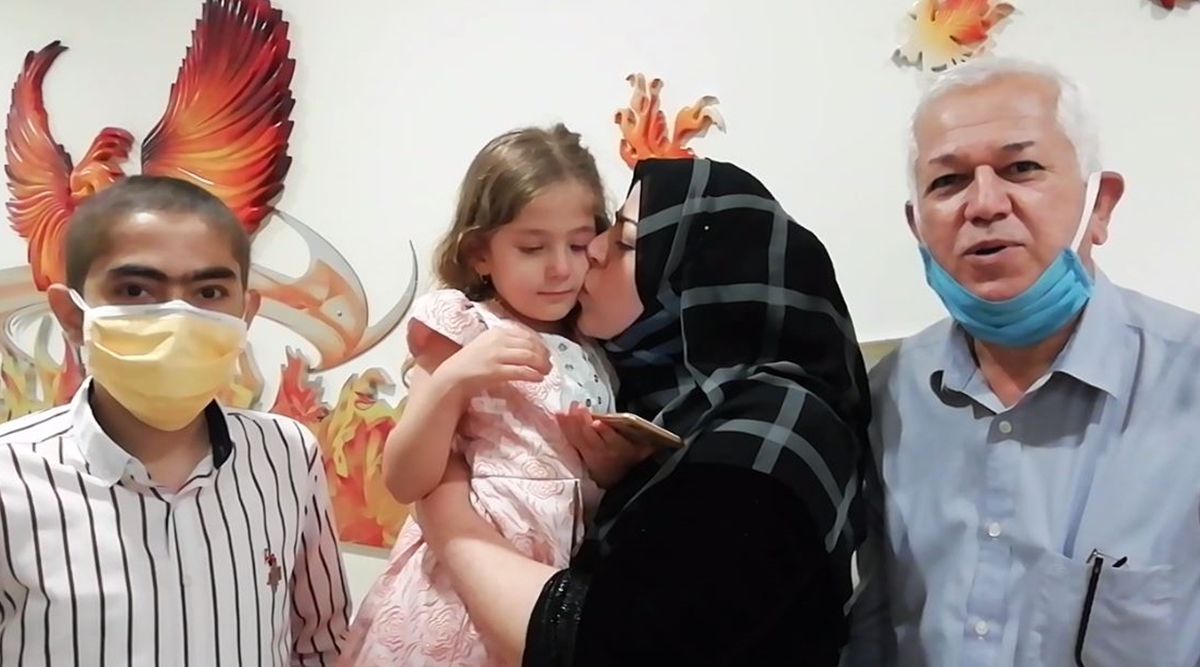
The Indian Express
Three-year-old bone marrow donor, Bengaluru doctors give Iraqi boy a new lease of life
However, things were not easy for the medical team at the hospital considering the age of the donor — the patient's three-year-old younger sister — and the obvious language barrier.
by Ralph Alex ArakalA three-year-old girl from Iraq became a lifesaver for her 18-year-old brother after she donated her bone marrow for a successful transplantation that took place in Bengaluru.
Ahmed had undergone splenectomy in his native country and was referred to Manipal Hospitals in Bengaluru since only optimal treatment is available in Iraq. According to doctors at the hospital, the teenager was also suffering from symptomatic anemia (needing frequent blood transfusions) and jaundice.
Dr Mallikarjun Kalashetty, consultant – Haematology, Haemato-Oncology & Bone Marrow Transplantation at Manipal Hospitals, said Ahmed required an allogeneic bone marrow transplantation.
https://images.indianexpress.com/2020/08/1x1.png
“The best donors for such patients are the human leukocyte antigen (HLA)-matched siblings who are normal or with a minor form of haemoglobinopathy (a hereditary condition involving an abnormality in the structure of haemoglobin) or thalassaemia (a blood disorder involving lower-than-normal amounts of an oxygen-carrying protein),” Dr Kalashetty explained.
However, things were not easy for the medical team at the hospital considering the age of the donor — the patient’s three-year-old younger sister — and the obvious language barrier. Transfusion experts at the hospital soon realised the process was challenging as they required the processing of 8-10 litres of blood from the donor aged three, weighing 18 kilograms, who had only a blood volume of about 1.3 litres.
“Considering her age, the donor had to be sedated to elicit co-operation during apheresis (extracting blood and separating components) in multiple sittings and preserve the stem cells through cryopreservation. To counter the low volume of blood going into the apheresis machine, we filled the dead spaces with compatible RBC, and to reduce the fluid overload, we determined and monitored the volume of the fluid going into the body of the child,” Dr C Shivaram, consultant – transfusion medicine said.
However, the allogeneic bone marrow transplantation was successful and Ahmed has now recovered from the sickle-cell disease. “He did have few complications after transplantation like mucositis, febrile neutropenia, and viral reactivation, which were successfully managed,” Dr Kalashetty said.
“Ahmed’s quality of life has improved significantly and his parents are overjoyed to see their son doing so well after suffering from the illness for several years. The satisfaction of seeing the joy on the faces of the patient and his family is unmatched,” he said.